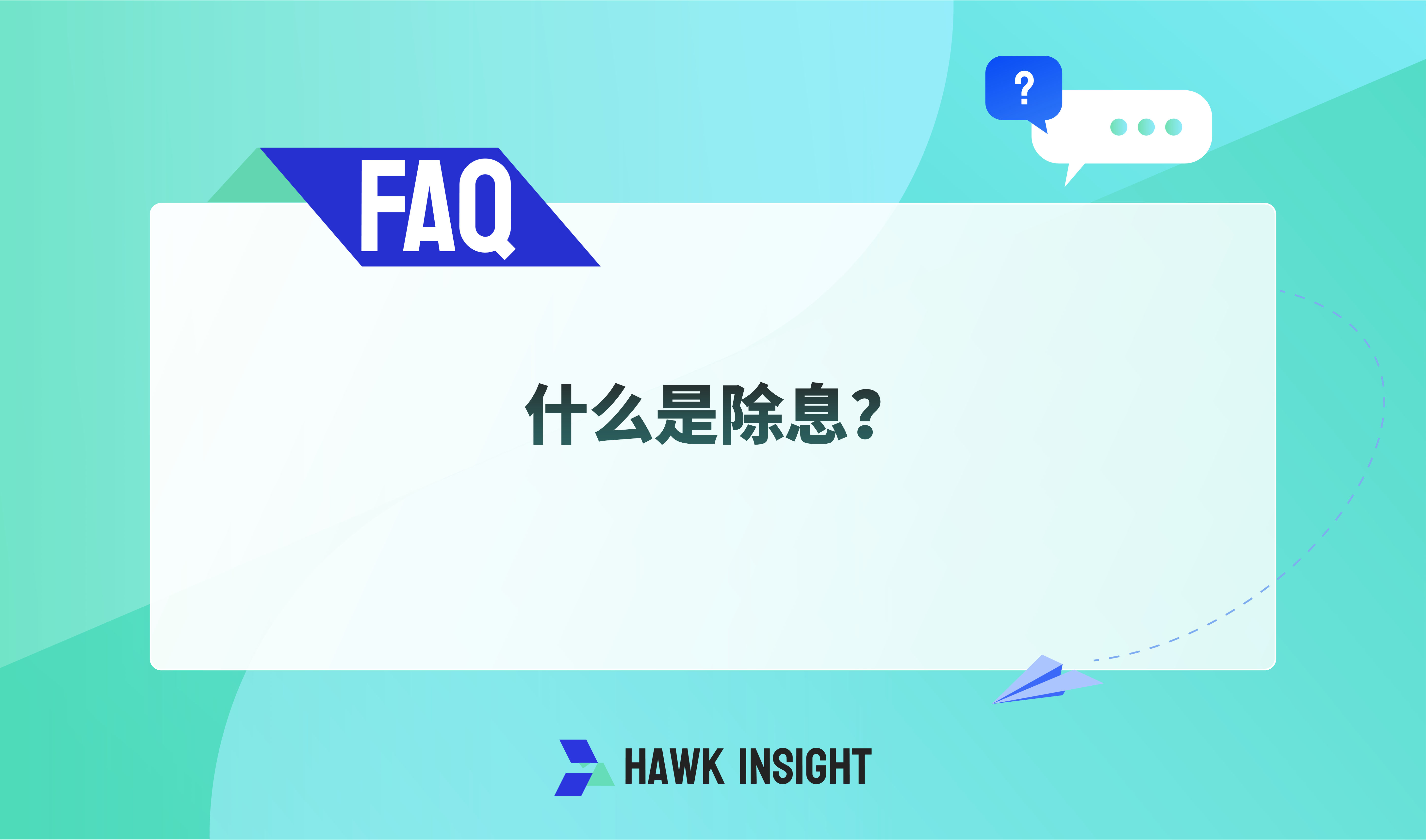什么是除息?
当新所有者无权获得下一次股息支付时,股票就被除息了——购买股票时不包括待定的股息分配,因此其价格可能会略低。
定义
当新所有者无权获得下一次股息支付时,股票就被除息了——购买股票时不包括待定的股息分配,因此其价格可能会略低。

了解除息
如果股票是在除息日当天或之后购买的,则该股票属于除息股。除息期间,公司股票的购买者将不会收到待支付的股息。公司在这段时间统计该向谁支付股息。
为了确定谁符合资格,该公司象征性地选择了一天,任何在该日(称为登记日)拥有股票的人都将收到付款。由于更新所有权记录需要几天时间,因此记录日期前最后几天发生的任何交易都是除息的(之前的所有者获得最近的股息)。
例子
通用汽车公司 (GM) 宣布向股东支付每股普通股 0.38 美元的股息。该公告于 10 月 28 日发布,股息将于 12 月 19 日支付。该公司还指出,12 月 6 日登记在册的股东将有权获得股息。
由于更新账簿需要时间,太接近记录日期的购买将无法及时转移以符合分配资格。因此,12 月 4 日之后购买的股票属于除息(12 月 5 日为除息日)。
股票除息时会发生什么?
虽然股票是除息股票,但在交易时的待支付股息不包括在其中。 除息日前一天的股票所有者将被除息,无论他们在支付时是否仍然拥有该股票。
由于除息时股息分配的价值不会转移,因此股票价格通常会在除息当天下跌相当于股息金额。股票价格的下跌不应与公司价值发生变化的迹象相混淆,在比较市盈率(P/E 比率)等价值指标时应予以考虑。
与股息相关的重要日期
一些重要日期与公司的股息支付有关。 他们包括:
宣布日是公司通过新闻稿宣布股息分配的日期。公司董事会将提前几天或几周决定支付股息,宣布日是公众了解即将分发的第一天。
支付日是向股东分配股息的日期。该日期在申报日期提供,以便交易者知道付款何时到达他们的账户。
记录日是公司关闭账簿以决定谁有权获得待决股息的日期。在此日期拥有股票的任何人都会收到公司记录所示的每股付款。
除息日是任何股票交易不再包含未决股息的第一个交易日,任何在除息日或之后购买股票的人都不会收到即将付款。
除息日当天可以获得股息吗?
您不会在除息日获得股息。公司宣布股息分配时会提供两个重要日期——支付日是您获得股息的日期。 但该公司还给出了付款日期前一两周的记录日期;只有在登记日登记在册的股东才能获得股息。
除息日至少比记录日早一个工作日,使公司有时间更新记录。
在除息日出售股票还能获得股息吗?
是的,在除息日当天或之后的任何交易都将排除未决股息。当分配付款时,您仍然是公司账簿中记录的所有者。因此,如果您在除息日出售股票,大约两周后您仍然可以获得股息。
假设您拥有虚构的 XYZ 公司 100 股普通股,该公司的交易价格为每股 50 美元。该公司宣布派发每股 0.50 美元的股息,支付日期为 3 月 15 日,除息日是 3 月 1 日。
如果您在 3 月 1 日之前出售股票,您将获得 5,000 美元的出售收益,但新所有者将在 3 月 15 日获得股息。然而,如果您在 3 月 1 日(或此后的任何一天)出售股票,您获得的股票价值可能会减少(可能为 4,950 美元),但在 3 月 15 日仍会获得 50 美元的股息支票。
如果您在除息日之前一天出售股票,您也将获得股息的权利出售给新所有者。
持有股票多长时间才能获得股息?
普通股没有任何类型的归属期。在登记日(公司检查其所有权记录的日期)列为股东的人将获得股息。从逻辑上讲,这意味着您必须在付款日期之前持有股票两周左右,但这只是因为向股东分配资金的时间安排。
记录日期通常是付款日期前两周。由于交易必须在记录日期之前清算,因此您通常必须至少在记录日期之前几天开始购买。
除息日是哪一天?
每家公司都会提供不同的股息支付日期和所有权记录锁定时间,有些公司还规定交易成为除息日(新所有者无权获得股息)。
登记日通常是付款日之前两周左右,除息日通常是登记日之前一到两个工作日(取决于交易所规则)。
大多数公司倾向于每季度分配股息。它们通常在季度董事会会议后宣布,并在大约 4-6 周后分发。虽然每家公司都不同,但您可以通过在上一次股息支付的基础上加上三个月来估算下一次股息支付。
但请记住,并非所有公司都会向股东分配收益。正在成长的公司不太可能支付股息,因为它们的利润被再投资到公司。成熟的公司更有可能向股东分配收益,此外,有支付股息历史的公司更有可能继续这样做。
股票总是除息吗?
在正常情况下,股息股票总是在记录日期(公司确定谁将收到分配的日期)之前至少一个工作日除息(购买股票不包括待支付的股息)。
然而,由于公司的股价通常会在除息后立即下跌相当于股息的金额,因此大量分配可能会导致股市出现问题。因此,大多数证券交易所规则都规定股息金额为股价的 25% 或以上时的例外情况。在这种情况下,股票在支付之前都是附带股息(包括股息)。
在其他情况下,公司可能会提供公司股票额外股份的股息,而不是现金股息。在这种情况下,向刚刚表示希望停止投资该公司的人分配股票没有多大意义。因此,在分配股票之前,股票股息通常不会除息。这意味着,如果您在宣布股票股息后出售股票,您将出售当前股票和您计划收到的股息。
·原创文章
免责声明:本文观点来自原作者,不代表Hawk Insight的观点和立场。文章内容仅供参考、交流、学习,不构成投资建议。如涉及版权问题,请联系我们删除。